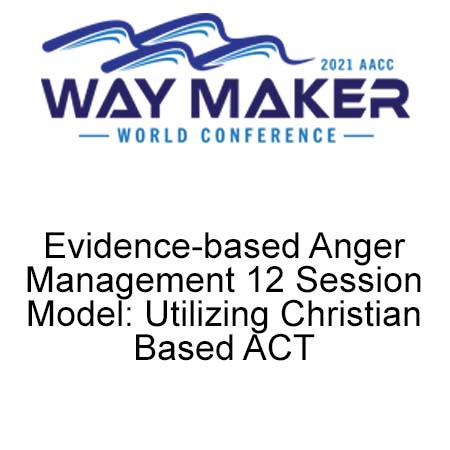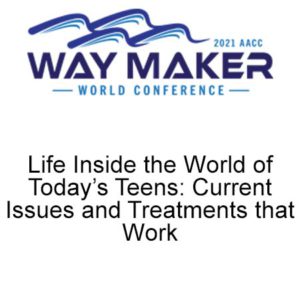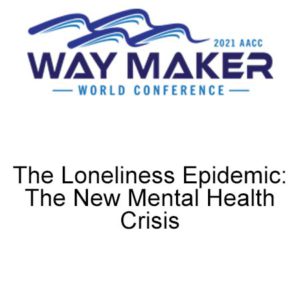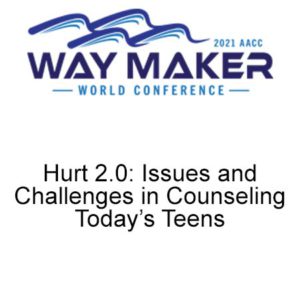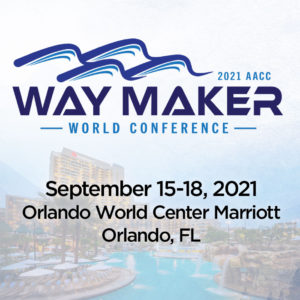Description
413: Evidence-based Anger Management 12 Session Model: Utilizing Christian Based ACT
Richard Hoffman, Ph.D.
Christian Counseling Associates
438 Pellis Rd., Ste. 202
Greensburg, PA 15601
Summary
Acceptance and Commitment Therapy (ACT) has quickly established itself as a leading “third wave” approach in the behavioral therapy tradition. However, unlike CBT, which emphasizes helping a client modify irrational or unhelpful thoughts, the underlying philosophy of ACT is that trying to change or even fix ourselves often exacerbates our symptoms—thus, acceptance is key. ACT brings together the best of many worlds—it integrates mindfulness into a coherent system of therapy and, at the same time, extensive research on ACT with a variety of populations has helped it to achieve the status of an evidence-based approach, recognized as such by the American Psychological Association (APA) and the Substance Abuse and Mental Health Services Administration (SAMHSA) of the U.S. government. For those struggling with explosive anger, impulse control issues, and psychological inflexibility, ACT is an effective, evidence-based counseling model. This workshop will analyze a comprehensive ACT-based, 12 session anger management model appropriate for group and individual counseling. This workshop will also apply core Christian faith disciplines and biblically informed skills and techniques that inherently align with ACT’s empirically validated therapeutic factors. Based on empirically validated factors, attendees will be given a model that provides a comprehensive anger management protocol relevant for Church-based settings and court-related referral systems.
Learning Objectives
Participants will:
• Critique the core concepts of Psychological Flexibility versus Psychological Inflexibility and how this relates to explosive anger and intermittent explosive disorder
• Prepare clients to learn ACT-based skills to manage inappropriate anger impulses more effectively within sessions for a psychologist or licensed mental health professional
• Develop relevant pathways to identify and engage populations that are typically affected by anger management issues in both church-based and court-related settings

